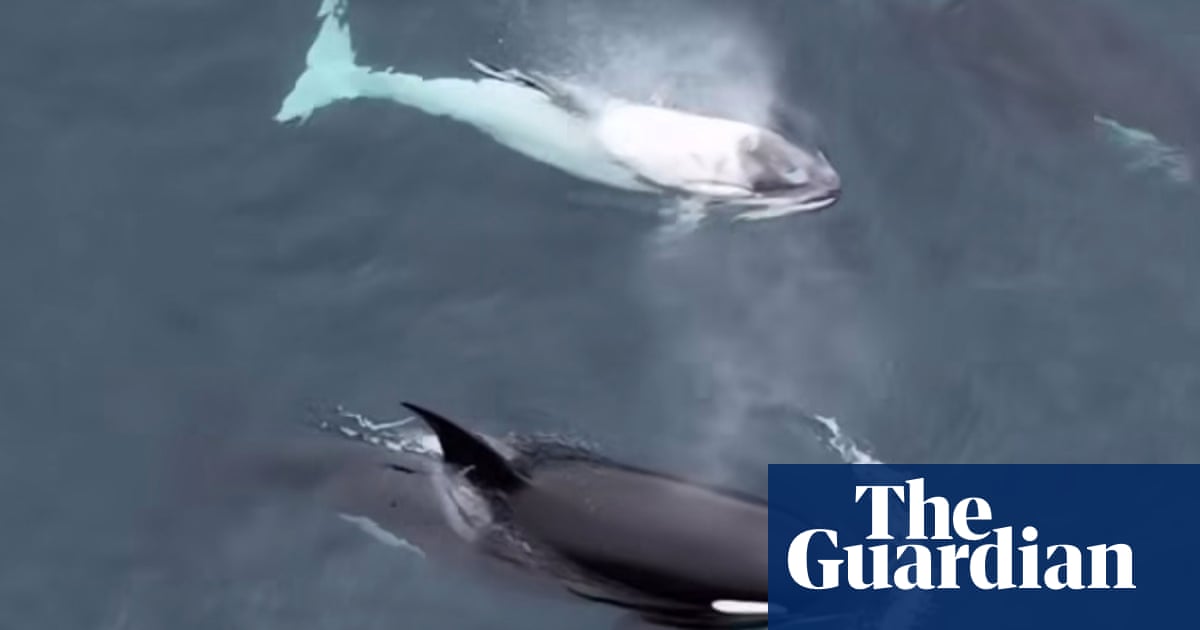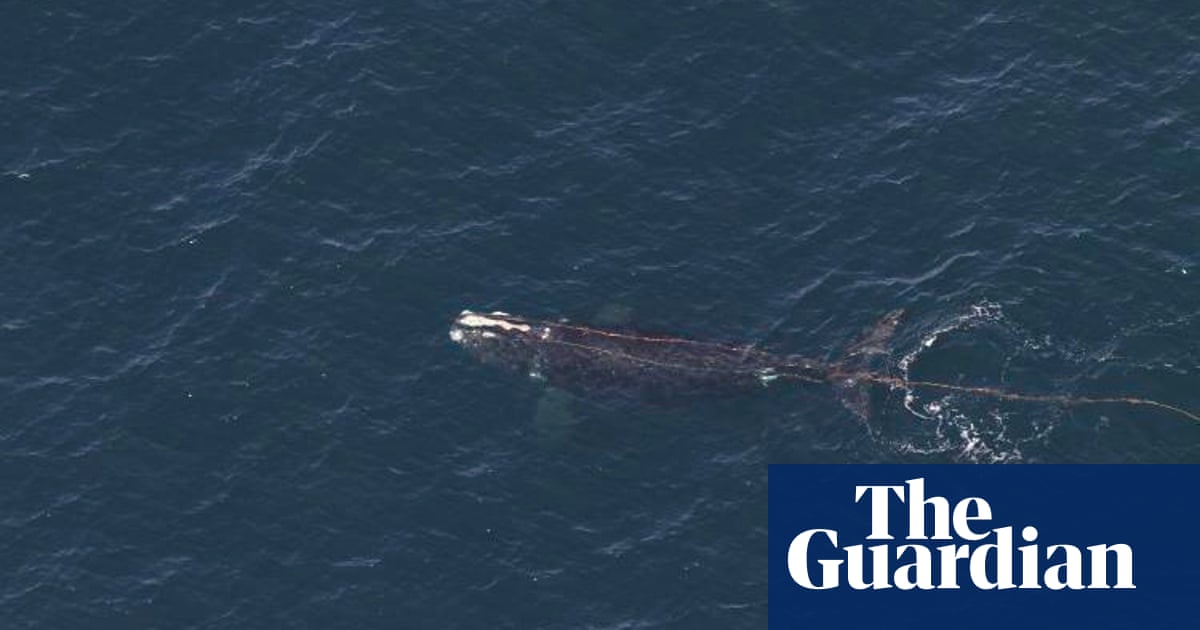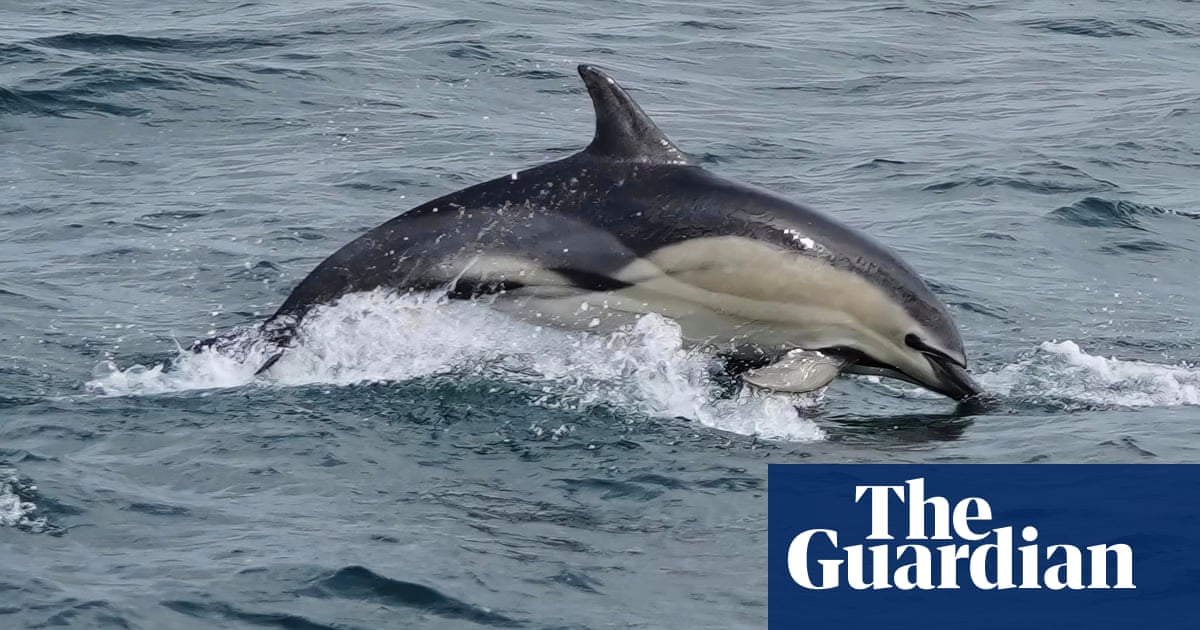
A rare white orca calf has been spotted off the coast of southern California.
In a video captured on Monday by a whale-watching tour company, Newport Coastal Adventures, the white calf was seen swimming with six other orcas near Newport Harbour.
The three-year old was initially spotted by a Long Beach whale-watching company, which then told Newport Coastal Adventures of the sighting, Fox 5 reported.
“On just a few hours’ notice, we loaded three boats for a special trip and drove 50 miles before we finally found the CA216 pod,” Newport Coastal Adventures wrote in a caption alongside footage of the calf.
The calf is completely white except for a greyish dorsal fin and head. The tour group named it “Frosty”, due to its “unusually light skin…[the] result of a rare genetic condition”.
Passengers on the whale-watching tour were able to watch the orcas for more than two hours as they swam up the coastline until sunset, boat captain Delaney Trowbridge told Fox 5. The pod approached the boat a few times, he said.
In a statement to Newsweek, Whale and Dolphin Conservation spokesperson Danny Groves explained that white orcas are not outcast from their pods as some people may think.
“They are completely accepted,” he said.
Mark Girardeau, also from Whale and Dolphin Conservation, told the outlet this particular pod has been spotted as far south as Mexico and as far north as Canada.
According to experts, several known conditions cause certain animals, including orcas, to look white. One condition is leucism, in which the pigmentation of the skin is paler. The other is Chediak-Higashi syndrome, an inheritable immune deficiency that can cause partial albinism.
In the California orca’s case, the condition is leucism, which is rare in orcas.
“There are multiple reasons such patterns occur but genetics is a large factor,” Luke Rendell, a biology lecturer at the University of St Andrews’ sea mammal research unit, told Newsweek.
“Albinism is an almost complete lack of pigment … There is also leucism, which is what affects Frosty, a partial pigment loss through a development glitch in skin cells. Leucism can therefore have developmental as well as genetic causes.”












